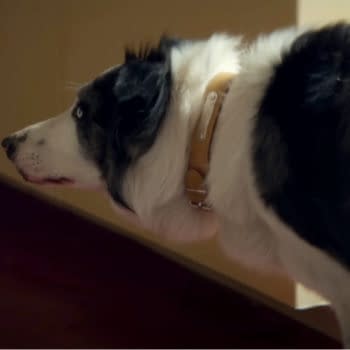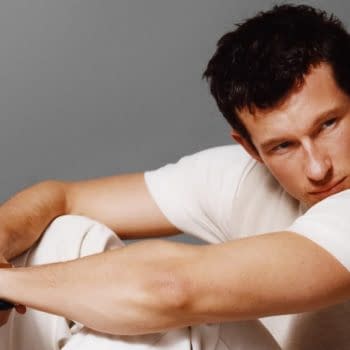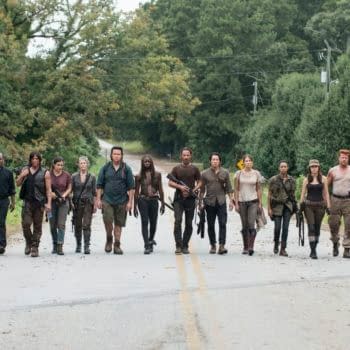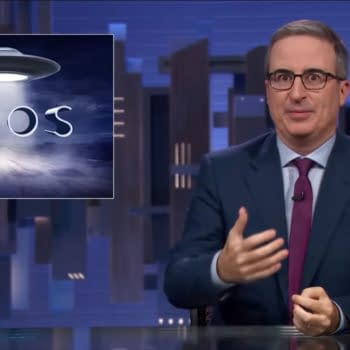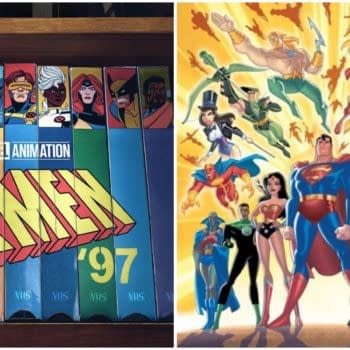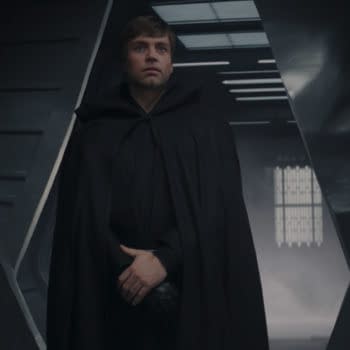Posted in: Apple, TV | Tagged: ai, apple tv, james hawes, Slow Horses
Slow Horses Director Believes Show Created By AI Only 3-5 Years Away
Slow Horses director James Hawes believes a TV show generated by AI is only 3-5 years away - but questions of how good it would be remain.
Slow Horses series director James Hawes has stated that a TV series completely made by generative AI is only three to five years away. As reported by Deadline, Hawes had been speaking with legal teams at SAG-AFTRA and the WGA and undertook a poll with fellow directors and VFX workers after the BBC canceled its long-running daytime drama Doctors, in which he investigated how likely a fully AI-made series could be made. By that, he meant a TV series completely generated inside a computer with Artificial Intelligence without the work of human crews or actors, without the use of physical equipment like cameras, lights, microphones or physical sets like outdoor locations or even studios.
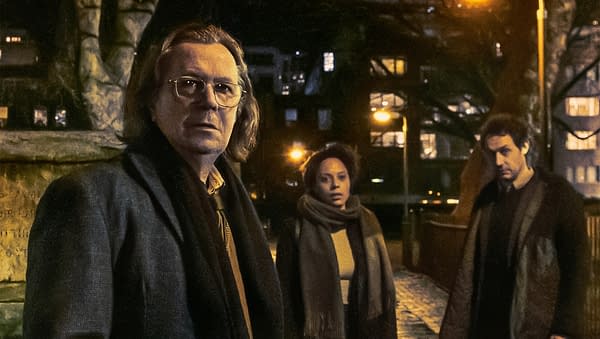
"The best guess was three to five years," Hawes told the British Film & High-End TV Inquiry. "Someone will say, 'Create a scene in an ER room where a doctor comes in and he's having an affair with a woman, and they're flirting, and someone is dying on the table,' and AI will start to create it. Maybe it won't be as polished as we are used to, but that is how close we are getting."
Hawes, an accomplished novelist before he became a Film and Television director, is also vice chair of Directors UK and discussed concerns that shows with AI so central to their creation will have an impact on "vital training grounds" for below-the-line staffers making their way through the industry, citing Doctors. This discussion has become a hot topic, especially after OpenAI revealed its text-to-video creation program Sora.
Hawes acknowledged the "genie is out the bottle" now with AI and the UK should work to catch up with the likes of the U.S., as he pointed to the launch of Open AI's Sora program last week, which can generate scenes digitally. "My worry is that if we don't get up to speed with this, then the AI-generated stories will come from elsewhere," he added. "We need to take note and act on it now. Silicon Valley is way ahead."
The Writers Guild of America and Screen Actor Guild in the US recently secured guardrails surrounding the use of AI in their contracts with the AMPTP after a long strike and messy negotiations last year – concerns about the studios replacing writers and actors with AI was one of the reasons the writers' and actors' strikes occurred in the first place. Hawes reported that the Directors Guild of America is sitting down with members and studios to discuss this every few months. In the UK, artificial intelligence is set to play a major role in the actors' union's upcoming negotiations with broadcasters and producers.
Hawes urged British stakeholders across the board to stay aware of the debate. Before the inquiry hearing, he joked that he prepared by asking ChatGPT to come up with the questions he would be asked, and it had been "very accurate." Hawes stressed that there is no replacement for the spontaneity of non-AI production and cited an example of Anthony Hopkins playing the piano on the set of his recent film One Life, which was introduced into the scene after wowing those working on the show.
A show like Slow Horses, with its flawed, imperfect characters and deliberately messy emotional moments, is currently impossible for Artificial Intelligence to generate from just some textual prompts. AI is incapable of emotions, only copying the appearance of emotions in AI-generated people on screen. An artificial person can be created by AI, but one capable of spontaneous emotional reactions and speech is still a long way away, perhaps three to five years or longer. Every screenwriter and actor knows that the studios would love to be able to replace human writers and actors with AI if it could, but AI-generated content will never feel authentic. There will always be an uncanny valley unless and until AI becomes truly sentient and independent of human prompts. The question is if that will ever happen, and even if it does, would AI even be interested in thinking and reacting like humans? For the foreseeable future, even if AI can generate a complete film or TV show, a human is still needed to create the content and tell the AI exactly what to make. For now and the next few years, anyway.



